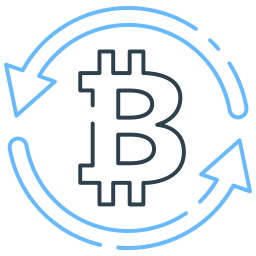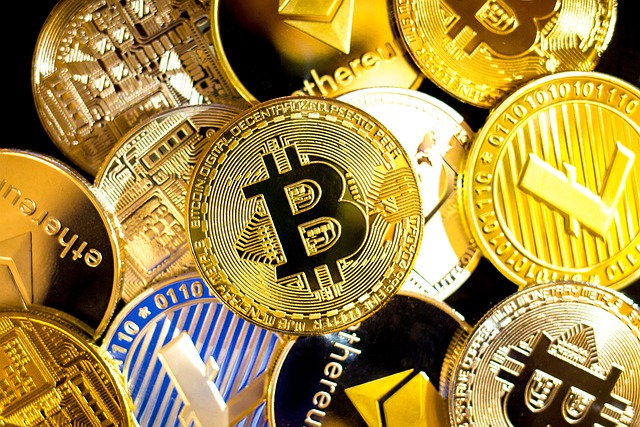Introduction
XRP, a digital asset developed by Ripple Labs, has been at the center of several legal challenges and controversies since its inception. As the cryptocurrency market continues to evolve, understanding the legal implications of XRP and its future prospects is crucial for investors, regulators, and enthusiasts alike.
In this article, we will delve into the complex legal landscape surrounding XRP, exploring key cases, regulatory developments, and potential implications for the financial world. We will also examine the future outlook for XRP, discussing factors that may impact its adoption and value in the years to come.
Main Points:
- Regulatory Frameworks: Understanding the Regulatory Environment
- The Case of SEC v. Wynn: A Turning Point in XRP Regulation
- The Impact of the SEC’s BitConnect Guidance on XRP
- XRP and the Securities Act of 1933: A Complex Issue
- Regulatory Developments in Japan and South Korea
- The Role of XRP in Cross-Border Payments
- Future Prospects for XRP: Adoption, Security, and Regulatory Clarity
The SEC’s BitConnect Guidance and its Implications for XRP
In June 2018, the Securities and Exchange Commission (SEC) issued guidance on the BitConnect token sale, classifying it as an unregistered securities offering. This move had significant implications for XRP, which had long been classified as a utility token by Ripple Labs.
However, in December 2020, the SEC announced its intention to pursue charges against Wynn Resorts CEO Steve Wynn over allegations that he sold XRP without disclosing his relationship with Ripple Labs. This case has been closely watched by investors and regulators alike, as it may set a precedent for future XRP sales.
The SEC’s BitConnect guidance highlights the challenges of defining digital assets in the regulatory environment. As cryptocurrencies continue to evolve, it is essential to develop clear guidelines that balance innovation with consumer protection.
XRP and the Securities Act of 1933: A Complex Issue
One of the most complex questions surrounding XRP is its status under the Securities Act of 1933. The SEC has historically viewed XRP as a commodity, but some argue that it has characteristics of a security.
In September 2020, Ripple Labs announced that it would no longer sell XRP to U.S. investors, citing the ongoing SEC investigation. This move was seen as a response to growing regulatory pressure and the desire for clarity on XRP’s status under securities law.
The impact of this announcement will depend on the outcome of the ongoing SEC case. If successful, it could provide significant clarity for investors and help establish a precedent for future digital asset sales.
Regulatory Developments in Japan and South Korea
Ripple Labs has made significant progress in recent years in establishing regulatory relationships with key partners in Japan and South Korea.In 2019, Ripple announced its intention to launch a major cross-border payment system in Japan, which would utilize XRP as the underlying asset. This move was seen as a significant step towards establishing XRP as a legitimate financial instrument in the country.
Similarly, in South Korea, Ripple Labs has established relationships with key financial institutions and regulators, paving the way for the adoption of XRP in cross-border payments.
The Role of XRP in Cross-Border Payments
XRP’s unique properties make it an attractive choice for cross-border payment systems. Its fast settlement times and low fees have attracted significant attention from banks and financial institutions.Ripple Labs has developed a range of solutions to facilitate cross-border payments, including the xRapid platform. This platform allows users to send XRP across borders with ease, reducing the need for expensive intermediaries.
The future outlook for XRP is closely tied to its adoption in cross-border payment systems. As more financial institutions and regulators begin to accept XRP as a legitimate asset, its value is likely to increase significantly.
Future Prospects for XRP: Adoption, Security, and Regulatory Clarity
The future of XRP is uncertain, but several factors are likely to impact its adoption and value in the coming years.Adoption will depend on the ability of Ripple Labs and its partners to establish clear regulatory frameworks and guidelines. As more financial institutions begin to accept XRP as a legitimate asset, its value is likely to increase significantly.
Security will also play a critical role in determining XRP’s future prospects. The development of more advanced security protocols and the implementation of robust anti-money laundering measures will be essential for establishing trust with investors and regulators alike.
Regulatory clarity will also be crucial in determining XRP’s future prospects. As the regulatory environment continues to evolve, it is essential for Ripple Labs to maintain close relationships with key regulators and stakeholders.
Conclusion
In conclusion, XRP’s legal challenges and future prospects are closely tied to its adoption in cross-border payment systems. As more financial institutions and regulators begin to accept XRP as a legitimate asset, its value is likely to increase significantly.
Ripple Labs has made significant progress in establishing regulatory relationships with key partners in Japan and South Korea, paving the way for the adoption of XRP in these countries.
However, the future outlook for XRP remains uncertain. Adoption, security, and regulatory clarity will all play critical roles in determining its value in the coming years.
As the regulatory environment continues to evolve, it is essential for investors and regulators alike to maintain close relationships with key stakeholders and to stay up-to-date on the latest developments in the XRP ecosystem.
Tags:
xrp regulatory challenges
xrp legal status
xrp adoption
xrp future prospects
XRP regulatory clarity



